|
In early January 2016, I looked back ruefully at a year that was very good for movies but lousy for democracy, fairness, compassion and personal privacy, tragically unaware as I did so how much worse it would get on all fronts. It's hard for me to look back at 2016 without thinking of John Oliver's passionate response to one of the year's most grimly foreboding events on Last Week Tonight, which concluded with a triumphant montage comprised solely of defiant cries of "Fuck 2016." Twice I was given cause to sit slack-jawed in disbelief and fear for the future. The first came in June, when a shockingly deceitful and xenophobic campaign, led by right-wing tabloid newspapers and some of the country's biggest political douchebags, resulted in a vote to leave the European Union, the consequences of which have already impacted on my life and people close to me and are clearly going to get worse in the years to come. The second saw a frighteningly unqualified and offensive idiot child in the body of a candyfloss-haired human ham get elected to the highest office in America and surround himself with a coven of über-wealthy demons in humanoid form, partly on the back of the increasingly alarming flood of fake news stories on which a Facebook-fed portion of the populace seems to base its world view. The UK, meanwhile, has an unelected leader who landed the job primarily because no-one else wanted it, and whose determination to spy on every citizen and keep detailed records of everything we do on-line has depressingly failed to prompt the widespread outrage that it should have. Have we really become a nation of subservient serfs who swallow whatever propagandist nonsense we're fed by the government and unelected newspaper oligarchs, who scream and shout in print if they don't get their way? Fuck me, I hope not. If that wasn't enough, in 2016 we lost musicians David Bowie, Prince and Glenn Frey, novelists Harper Lee and Jim Harrison, comedian Garry Shandling, boxing icon Muhammed Ali, director Garry Marshall, actors Alan Rickman, Gene Wilder, Carrie Fisher, Debbie Reynolds, Robert Vaughan, Tony Burton, Abe Vigoda, Patty Duke, Anton Yelchin (just 25, for fuck's sake), and too many more for me to contemplate on this dark and miserable evening.
The year was further tainted for me by personal circumstance. As 2015 came to a close, my mother's health took a serious nose-dive, which several hospital visits later resulted in her requiring 24-hour-a-day care, which my sister and I are committed to providing. If this were not enough, a problem I'd been having with my left foot worsened to the point where surgery looked to be the only option, which only seems to have made matters worse. I seriously underestimated the impact that the operation itself would have on my day-to-day life, and for five weeks straight I was effectively immobile, bombed out on pain killers and trying my damnedest to work from home base. Only later did I find out I should have spent the first two weeks lying down with my foot in the air and doing no work whatsoever. Oops. A series of meetings with the surgeon later, I am still in considerable pain and cannot hobble far, and it's been reluctantly confirmed that either something about the op didn't go quite to plan, or there is a secondary condition that the surgery has somehow inflamed instead of easing. Great.
This period of drug-dazed physical immobility kicked off a mere week before the start of the 2016 London Film Festival, and I was just three films in before I had to abandon my coverage and give up on the idea of grabbing interviews with the many attendees. This, and the period of immobility that followed, also prevented me from getting to screenings of a whole slew of films that I knew stood a good chance of making it onto a list of my favourites of the year. I've since managed to catch up with a few, but a number of the others have effectively missed the deadline and I'll thus have to wait until we screen them at the film society I co-run or they come out on Blu-ray, DVD or digital download. They include (and this really is a glum comment on what I've managed to miss this year) Arrival, Cemetery of Splendour, The Club, Elle, Embrace of the Serpent, Fire at Sea, The Girl with All the Gifts, Julietta, Nocturnal Animals, Notes on Blindness, Our Little Sister, Paterson, and The Pearl Button. That last one is a particularly poor show on my part, given that fellow reviewer Jerry Whyte and I interviewed its director, Patricio Guzmán, about the film way back in 2015. And no, I've still not seen The Force Awakens. Frankly I've already had enough Star Wars to last me this lifetime.
As I stopped watching live TV a couple of years back and now only tend to catch up with series when they are released on disc or as complete collections, I've also yet to see acclaimed shows like The Night Of or even season 3 of personal favourite Silicon Valley. I thoroughly enjoyed the style and the pro-hacker, anti-corporate line taken in season 1 of Mr. Robot, but had my enthusiasm for the second season dented a little by an end-of-first-series twist that I've now seen often enough to become just a little weary of. I'll doubtless get past it and catch up with what I missed, as what I liked about the series, I really liked. Game of Thrones hit its sixth season last year to considerable acclaim, but believe it or not, I'm still on season 1. It's a show that I keep meaning to catch up with (I've certainly enjoyed what I've seen so far), but over the course of the past year I've been subjected to almost daily spam emails from vendors selling Game of Thrones themed merchandise, and as result have developed an irrational grudge that I may well be able to get past now that this particular tidal wave of unsolicited crap has ceased. One for a box set binge at a later date, no doubt.
There are, as ever, a number of titles that almost made the list but which for me, at least, didn't quite make the cut but are still worth catching. Don't Breathe is a tightly constructed home invasion thriller that for its first half puts you in the interesting position of sympathising with both parties, and certainly has its share of nail-biting moments. The Wave is a Norwegian disaster movie that does a bang-up job on its character building scenes, but tends to walk a more familiar path once the disaster strikes, when the narrative is driven by handy coincidence and unlikely survivals, but it's still a largely gripping and sometimes spectacular Nordic take on the disaster movie format. In another good year for music documentaries, Janis: Little Girl Blue, The Beatles: Eight Days a Week – The Touring Years and Gimme Danger were stand-outs, and on the political front, Ava DuVernay's 13th, a worthy examination of the link between racial discrimination and the rapid rise in America's prison population, makes for sobering and educational viewing. I personally found the perverse oddness of Anders Thomas Jensen's Men & Chicken hard to resist, but really need to see it a second time to decide whether it belongs on my pick of the year. The same goes for Na Hong-jin's The Wailing, a compellingly made story of a village blighted by what could be a demonic sickness and whose brain-bending finale I'm still trying to make complete sense of. And for the gamers amongst you, I've had less time to sit at the PS4 over the past year, but really enjoyed Firewatch and Watch Dogs 2.
Although most sites seem to favour round numbers for their end-of-year lists, when I finished compiling mine I discovered that I had picked 21 titles, exactly the same number as I selected last year, and I'm reluctant to cut one for the sake of tidiness. So here are 21 personal film and TV favourites from 2016. There will, I would imagine, not be many surprises here (though a couple I'm sure few others would select), but there are damned good reasons why many of them have appeared on other end-of-year round-ups. As usual, I'm not putting these in any order of preference and have gone instead with listing them alphabetically. And if you're wondering about the title of this piece, it's not an exclamation of shock at the poor quality of releases (this has been another good year for film), but a reflection of how many good horror and horror themed titles the year has kindly thrown our way, a number of which have made my personal cut.
My pick of last year's Blu-ray and DVD releases will follow in the next few days.
| Films and TV: 21 personal favourites |
|
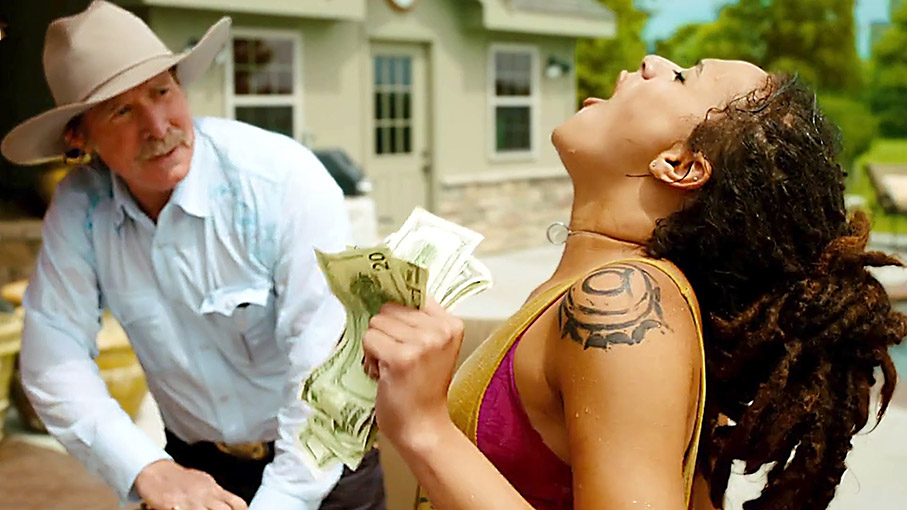
American Honey
This vibrant, freewheeling, semi-improvised road movie from Red Road and Fish Tank director Andrea Arnold appears to have pissed off as a many people as it's delighted, but for me it was one of the real pleasures of a decent year for American independent cinema. Picked-from-the-streets first-timer Sasha Lane is terrific as the teenage girl who looks to escape a life of poverty and abuse by hooking up with a ragtag band of travelling magazine sellers, one whose lifestyle she embraces but whose dishonest sales techniques she is not so comfortable with. As a result, she finds herself embraced by a group in which she remains a partial outsider, which allows us to share both her exhilaration and uncertainty as she trades one set of imposed lifestyle restrictions for another. As with Arnold's previous Fish Tank, there is no obvious differentiation between the reality-ground performances from established actors like Shia LaBeouf and the untrained newcomers who pepper the cast, which, together with Robbie Ryan's handheld, Academy-framed cinematography, helps to the blur the line between drama and documentary.
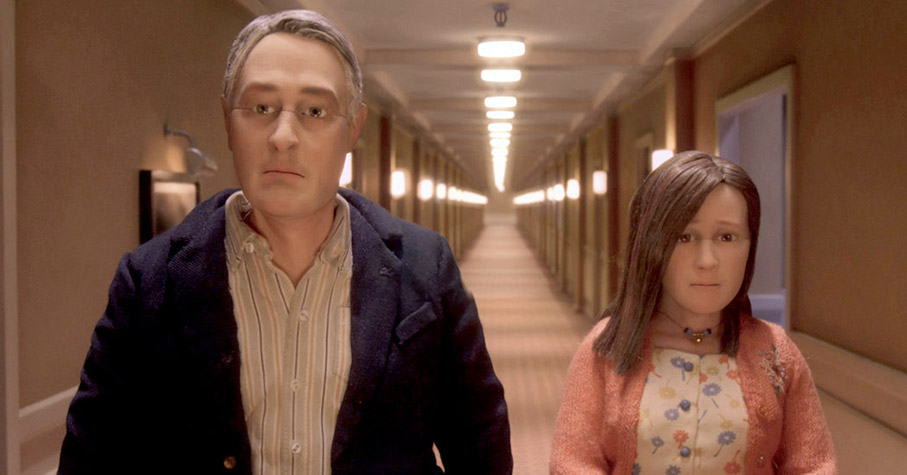
Anomalisa
One thing you could never accuse Charlie Kaufman of is following an obvious or predictable path. Who, for instance, could have anticipated that he'd follow the intellectually and visually ambitious Synecdoche, New York with a small-scale story of a jaded English motivational speaker who falls for and has an affair with a shy attendee at the customer service conference at which he is due to speak, and tell the story through strikingly realistic stop-motion animation? A completely character-driven work with a threadbare plot, it's a beautifully nuanced rumination on the soul-crushing mundanity of modern life and that strange certain something that attracts one person to another. It also has the most unexpectedly realistic sex scene you'll like find in a (non-porno) film all year. It's aided by superb voice work in the lead roles by David Thewlis and Jennifer Jason Leigh, but the unsung hero of the piece has to be Tom Noonan, who provides the voice of every other character in the film. Some will no doubt question why the film was not shot as a live action feature, given the astonishing realism of the character animation, but not only is this very part of the film's unique aesthetic, it also accentuates the artificial nature of the world as Michael sees it.
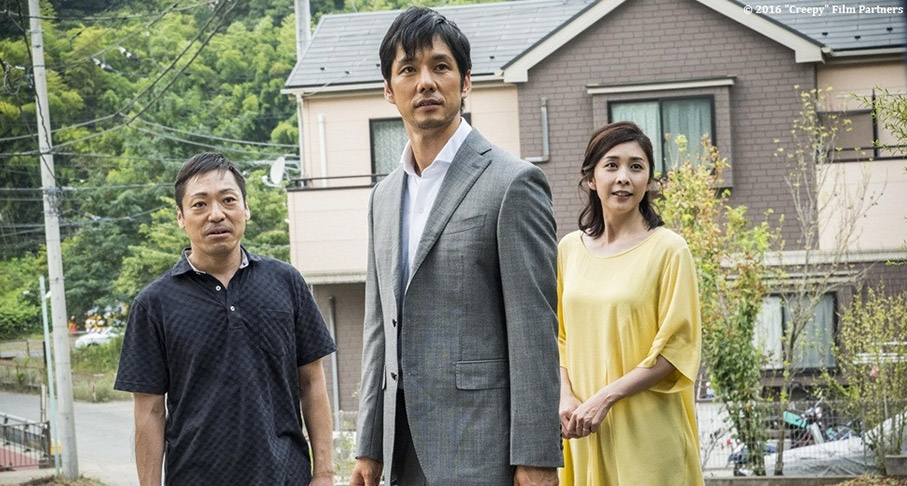
Creepy
First screened in the UK at this year's London Film Festival (and one of the few I got to see before being whipped off to hospital), the latest work from Cure, Pulse and Tokyo Sonata director Kurosawa Kiyoshi marked a welcome return to the dark and disturbing thrillers that first put him on the international map. When detective Takakura retires from the force after being seriously injured by a sociopathic killer, he moves away from the city and takes a job as a Professor of Criminology at a local university. Through the work of one of his new colleagues he becomes intrigued by an unsolved crime involving a missing family, but is also concerned that there is something not quite right about his oddball new neighbour, Nishino. Creepy is a film that lives up to its rather literal title though Nishino's increasingly discomforting behaviour and the unfolding details of the case with which Takakura becomes preoccupied, and in the second half it moves into the sort of sinister territory that Korean crime thrillers have almost made their own in recent years. It's a slow-burn work, but one that exerts a gradual hold that steadily evolves into a vice-like grip, and should have you chewing your fingernails right up to the end.
London Film Festival review >>
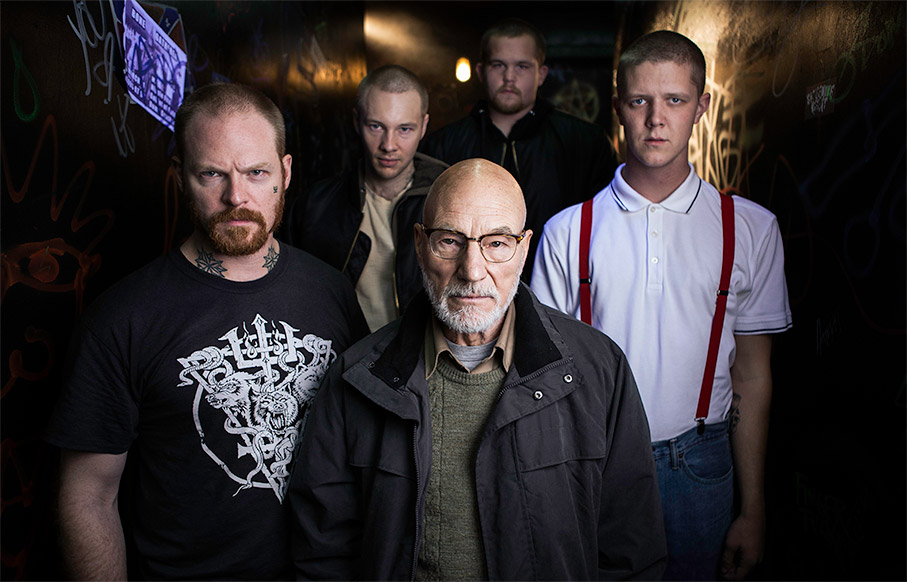
Green Room
One of the often-unsung triumphs of Jeremy Saulnier's dark and sometimes punishing horror-thriller is that it takes two groups that are often portrayed in a shallow and stereotypical manner and grounds them both in reality, which is one of the reasons that the film is so damned tense. When a punk rock group in desperate need of a gig land one at an out-of-the way clubhouse, they find themselves playing to an audience of neo-Nazis. Despite their choice of songs (The Dead Kennedys' Nazi Punks Fuck Off was probably not the best one for this audience), they make it through their set unscathed, but on their way out they witness the result of an impulsive murder and quickly find themselves under siege from those looking to cover up the crime and dispose of any witnesses. There's an impressively low-key turn from Patrick Stewart as the neo-Nazi leader and some strong, reality-based work all around in a cast that includes Imogen Poots, Mark Webber, Callum Turner, Joe Cole and Anton Yelchin, the lat of whom was another tragic loss to this exceptionally glum year. The make-up effects are particularly grisly, and include some of the most horribly realistic flesh wounds I've seen in the film since the cuts on Michael Fassbinder in Eden Lake.
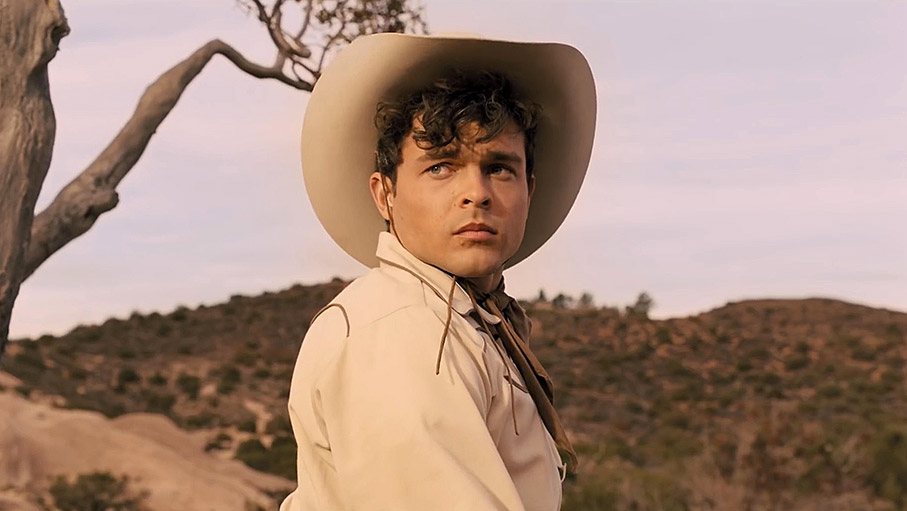
Hail, Caesar!
I'll freely admit that I didn't fully warm to the Coen Brothers' latest on my first viewing, but I couldn't get the damned thing out of my head, or shift the idea that I had gone in expecting one thing and been given another. The second time around, everything seemed to click. Set in the 1950s, the film follows Hollywood studio fixer Eddie Mannix over the course of a single day (albeit a 29-hour one – this man really earns his keep) as he deals with everything from troubled shoots to the pestering flap of twin sister gossip columnists to the kidnapping of the studio's top star by a group of communist screenwriters, all without fuss or even a hint of panic. It's the almost autopilot manner in which Mannix is able to juggle three problems at once and provide an instant response to even the most challenging question that makes him such an oddly fascinating lead character, but in the process we are also treated to a number of deliciously executed parodies of works from Hollywood's golden age. Josh Brolin is absolutely spot-on as Mannix, and while George Clooney is great fun as easily led studio star Baird Whitlock and Tilda Swinton shines as twin sister writers Thora and Thessaly Thacker, the two real star turns are Alden Ehrenreich as hick singing cowboy actor Hobie Doyle, and Scarlett Johansson, who's an absolute revelation as perennially snarky and secretly pregnant studio hot property DeeAnna Moran. The sequence in which Ralph Fiennes, as crisply English director Laurence Laurentz, tries in vain to coach Hobie into delivering the line "Would that it were so simple" in an appropriately upper-crust manner may well be the funniest thing I watched all year.
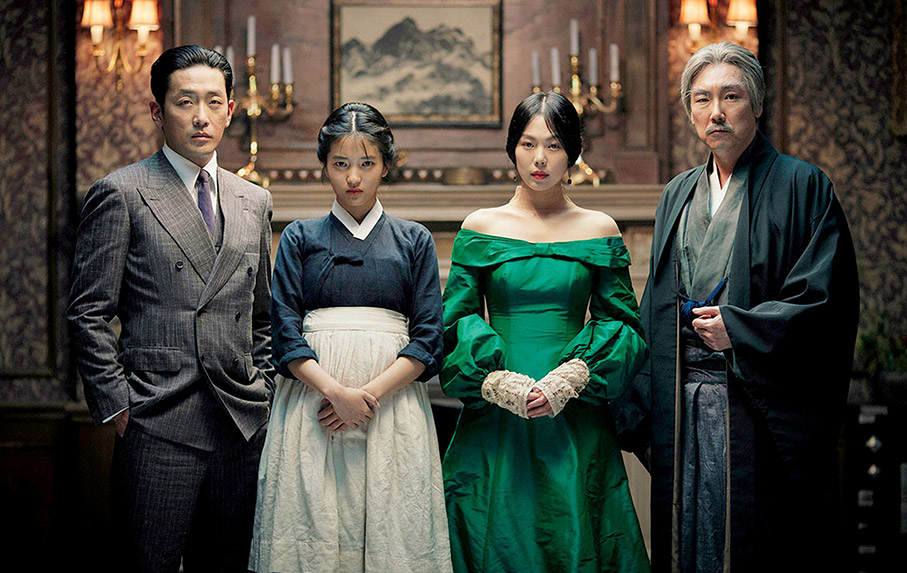
The Handmaiden
Skilled young pickpocket Sook-hee lands the position of handmaiden to wealthy but emotionally troubled Japanese heiress Lady Hideko, but is actually in league with a master con-man who is posing as a Count, his aim being to win Lady Hideko's hand, then have her committed and run away with her fortune. Loosely based on the novel Fingersmith by Sarah Waters and transposed from London to 1930s Korea under Japanese occupation, The Handmaiden is the latest from Vengeance Trilogy and Thirst director Park Chan-wook, and it's an absolute treat from start to finish. Divided into three chapters told from different viewpoints and peppered with surprising twists, it's a seductively directed work that melds period drama with erotic thriller and even has moments of laugh-out-loud physical comedy, plus a scene of genuinely teeth-clenching horror. There's gorgeous scope cinematography by Park regular Chung Chung-hoo, and the performances – particularly newcomer Kim Tae-ri as Sook-hee – are a delight. Loved it. The film hits UK cinemas later this year.
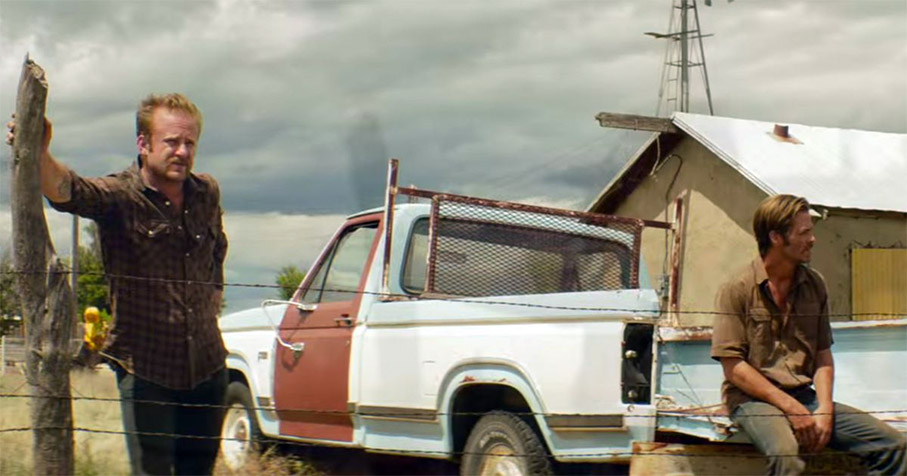
Hell or High Water
In modern-day West Texas, two brothers – a convincingly roughed-up Chris Pine and Ben Foster – embark on a series of bank robberies with the ultimate aim of raising enough money to prevent the foreclosure of their farm by the very institutions from whom they are stealing. Hot on their trail is grizzled lawman Marcus Hamilton – engagingly played by Jeff Bridges in True Grit mode – and his long-suffering Native American partner Alberto Parker (Gil Birmingham), who quickly work out that the boys are on a spree and look to catch them by predicting which bank they will hit next. Another film that I really connected with on the second viewing, this is a wonderfully textured, robustly socio-political modern-day western from Sicario writer Taylor Sheridan and Starred Up director David Mackenzie. It shines in its detail, its characters and its more contemplative scenes, but still opens in belting fashion with the exhilarating but deliciously character-centric staging of the first two robberies, where the brothers' make-it-up-as-you-go-along approach nets them nothing at the first bank and almost gets them shot by an ageing customer at the second.
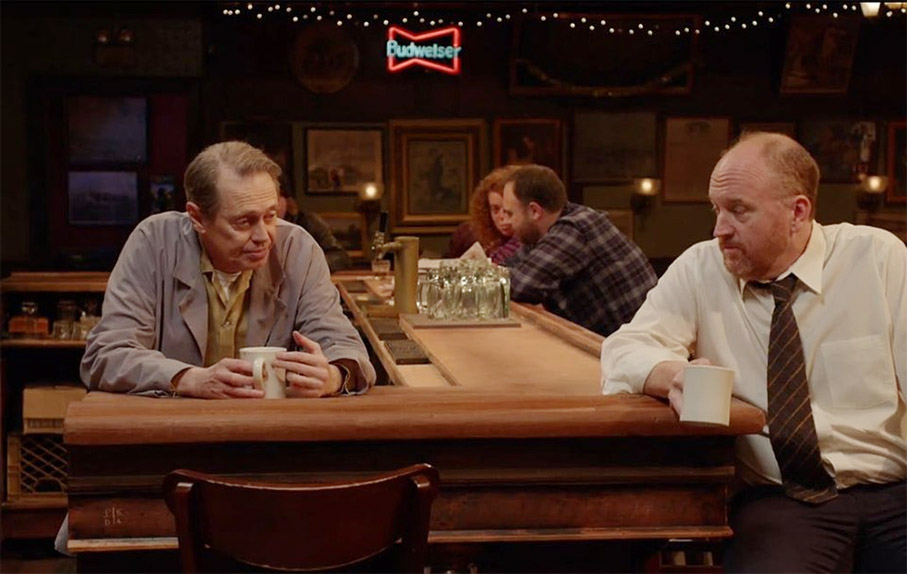
Horace and Pete
This one is definitely a bit of a cheat, as I've still only seen the first half of the series, but based on the quality of the first five episodes, Horace and Pete is without question one of the finest American TV dramas of the year. Except it wasn't made for or even shown on TV, being self-funded by its creator, screenwriter and lead actor Louis C.K., and was made available on a pay-to-view basis on his web site. Harking back to the days of character-led, studio-based dramas of the sort you'd find in series like Armchair Theatre and set solely in the bar (and the associated living quarters) run by its title characters, this is a beautifully written and performed work whose downbeat tone is laced with black humour and touchingly real observations and character moments. It's worth seeing alone for the killer of a cast that its creator was able to assemble, including Steve Buscemi, Edie Falco, Alan Alda, Jessica Lange, Steven Wright, Tom Noonan, Laurie Metcalf and Burt Young. There's even a cameo from singer-songwriter Paul Simon. The sheer balls of the series is epitomised by episode 3, which consists solely of a conversation between Horace (Louis C.K.) and his sister Sarah (Laurie Metcalf), and opens with a nine-minute monologue by Sarah captured in a single, unbroken and riveting close-up.
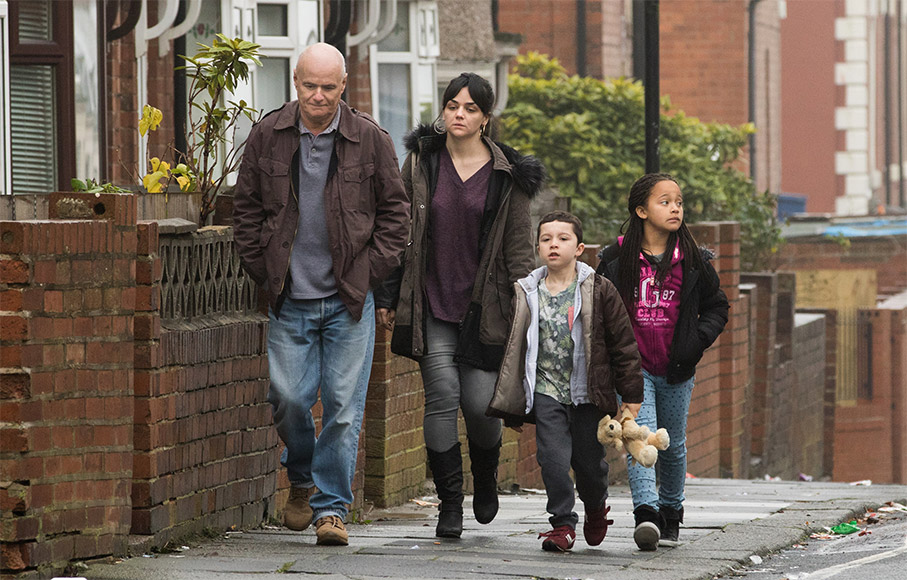
I, Daniel Blake
One of the toughest watches of the year was also one of the most crucial and accomplished. Stand-up comedian Dave Johns is superb as the titular Daniel Blake, a middle-aged carpenter who is signed off from work after a heart attack but finds himself at the mercy of a nightmarishly bureaucratic and coldly unsympathetic welfare system. Born of writer Paul Laverty and director Ken Loach's horror at the stories they were hearing about the effects of the government's punitive welfare cuts, this multi award-winning call to action may well be their finest and most politically urgent collaboration since My Name is Joe. The absurd nature of what Daniel has to go through sees the early scenes peppered with priceless moments of reality-based character comedy, but once Daniel befriends single mother Katie (an equally excellent Hayley Squires), who is also suffering at the hands of the system, the film takes on a more serious tone, climaxing in an emotionally devastating sequence of sheer desperation set in a food bank. See it, and get as many others as you can to see it as well. Interesting that the meat-faced David Cameron, whose policies gave birth to the twin stories being told here and who was so fond of congratulating (and being seen to congratulate) British celebrities on any international success, was strangely silent over this film's triumphant Palme D'Or win at Cannes.
Blu-ray review >>
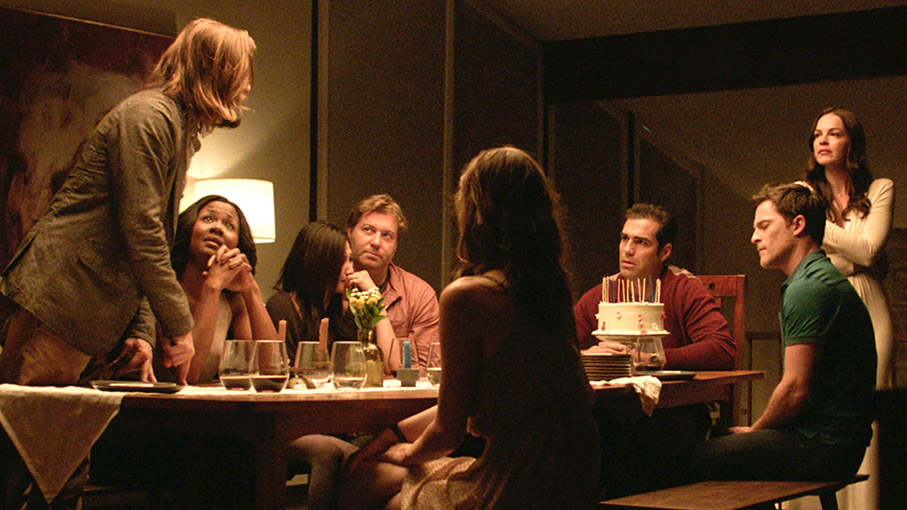
The Invitation
Director Karyn Kusama puts the dispiriting live action version of Æon Flux firmly behind her with this quietly compelling slow-burn thriller. 30-something Will is still dealing with the emotional impact caused by the death of his son two years previously, shortly after which his then wife Eden disappeared from his life. Out of the blue he receives an invitation to a dinner party to be held at the couple's former home and hosted by Eden and her new husband, David. When he arrives with his current girlfriend Kira, he is greeted by a number of the former couple's old friends, while a changed Eden appears to have come to terms with their son's death. But right from the start, Will is uneasy about the gathering and the prospect of opening still shallow wounds, and not long after his arrival begins to suspect that something about this evening is not quite right. Although not released in UK cinemas and only made available here on streaming services, The Invitation is a film that utterly gripped me from its opening scene, seduced as I was by Kusama's low-key approach, a string of impressively understated performances, and the sense of unease that permeates every scene. It's one of those films that plays best on a first viewing when you don't know quite what the implied threat might be, or whether it's all a product of Will's troubled mind, and is definitely one I'd go into cold with as little knowledge as possible about how the story plays out. Great ending, too.
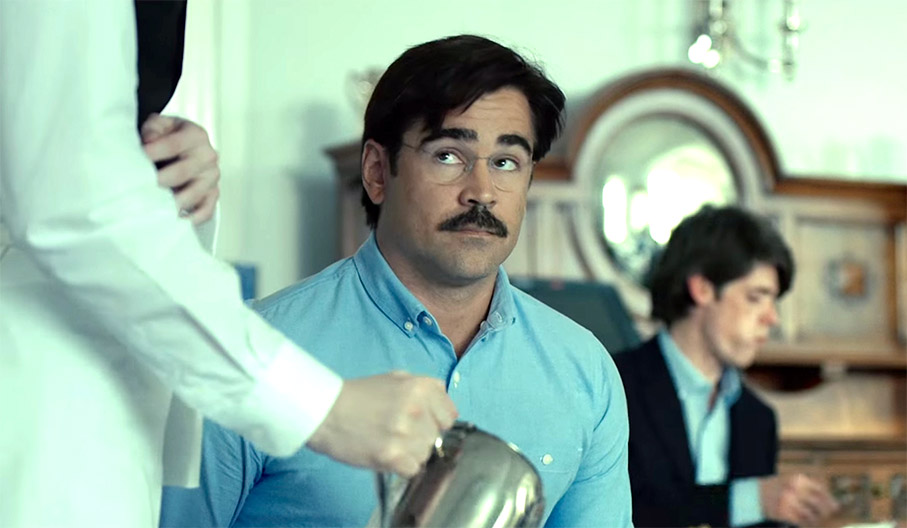
The Lobster
There are those who believe that Dogtooth and The Alps director Yorgos Lanthimos's first English language venture saw him stumble, but I loved every absurdist minute of it. At an unspecified time in a dystopian future when being single has been outlawed, recently separated David (played by a wonderfully downcast Colin Farrell) checks into a hotel where unattached guests are given 45 days to find a partner before being turned into the animal of their choice. I mean, come on, how seductive a hook is that? Blackly and surreally comic (David arrives at the hotel with a dog in tow, which turns out to be his brother), it also functions as a pertinent satire on societal mores and conventions, particularly once David hooks up with a group of fundamentalist "Loners" and finds himself attracted to someone that a new set of rules sternly forbids him from having physical contact with. A belter of a cast includes John C. Reilly, Rachel Weisz, Ben Whishaw and Olivia Colman. Even the poster for this one is neat.
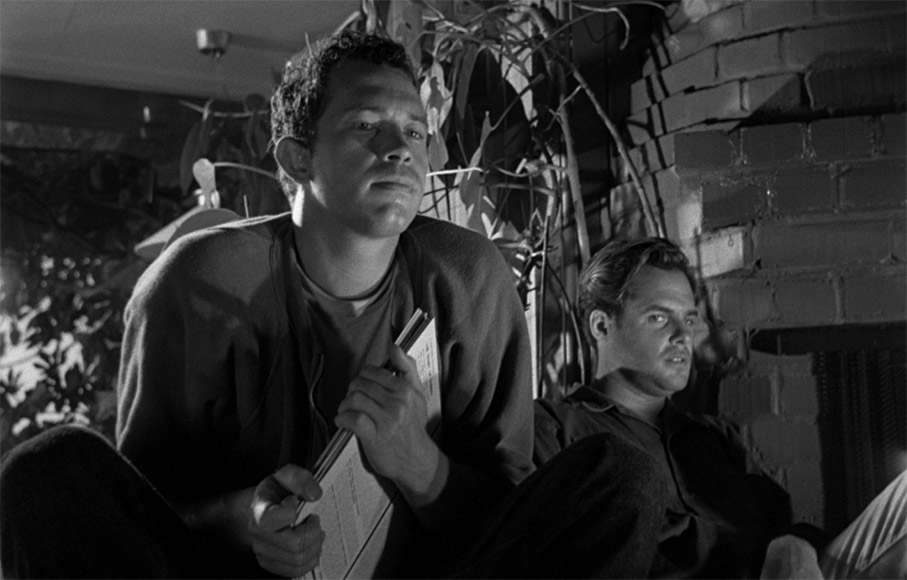
Private Property
One of the best films I saw this year was made in 1960, but was screened at this year's London Film Festival in a new restoration and was one of the few I managed to catch before my foot was carved open. Corey Allen and Warren Oates (as it is with Tommy Lee Jones, I could watch Oates in anything) play a pair of dodgy drifters named Duke and Boots, who select unsuspecting Beverly Hills housewife Kate to be the woman with whom the sexually inexperienced Boots will finally lose his virginity. But instead of assaulting her as expected, they follow her home and break into the empty house next door, from where they spy on her before gradually worming their way into her life and feeding off her discontent with the state of her marriage. Written and directed by Outer Limits creator Leslie Stevens, Private Property drips with tension and low-key menace, as we get discomfortingly close to Boots and his unstable partner and are teased at considerable length over just where this dangerous seduction might be leading. Given that the film has been restored and that it has attracted considerable praise, it really needs a UK Blu-ray release, but if you have the cash to spare (and a multi-region player) you can import it from the US, where it was released by Cinelicious.
London Film Festival review >>
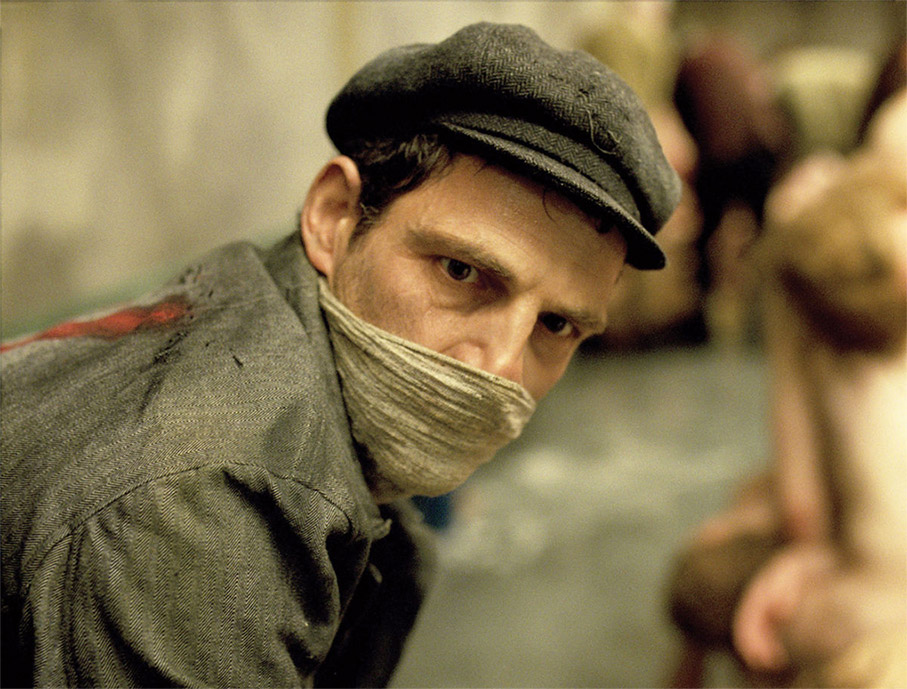
Son of Saul
Just when we thought that a line had been drawn under Holocaust-themed film dramas, along comes Hungarian director László Nemes' extraordinary first feature to knock you back into your seat. The film follows (and I mean that in the literal sense) Hungarian concentration camp prisoner Saul Ausländer (a remarkable Géza Röhrig), who has stayed alive by working as a Sonderkommando, an inmate who assists the Nazis in the physical process of mass extermination. When he discovers the body of a boy that he believes to be his son, he risks his own life and that of those around him to find a rabbi to read the Kaddish and give him a proper burial, while others in the camp are secretly plotting rebellion. Shot in the now rarely used Academy ratio with a narrow depth of field, the film locks on to Saul in a similar manner to the Dardenne Brothers' 2002 Le fils did to its lead character, binding us to him and his obsession in a manner that is alternately frustrating (Saul's stubborn single-mindedness repeatedly places those around him in grave peril), disturbing and terrifying. By so effectively restricting our field of view (the camerawork and focus-pulling on this film are both extraordinary), Nemes avoids any charges of holocaust porn through an impressionist approach that portrays even the most appalling events as often out-of-focus peripheral imagery, impacting instead though one of the most astonishing soundtracks I've heard in years – the pre-title sequence, in which a new intake is encouraged to undress and is brusquely shepherded into showers that we all know now were gas chambers and the camera locks on Saul as our ears ring with the sound of desperate screams and the hammering of fists on metal doors, left me shaking with horror.
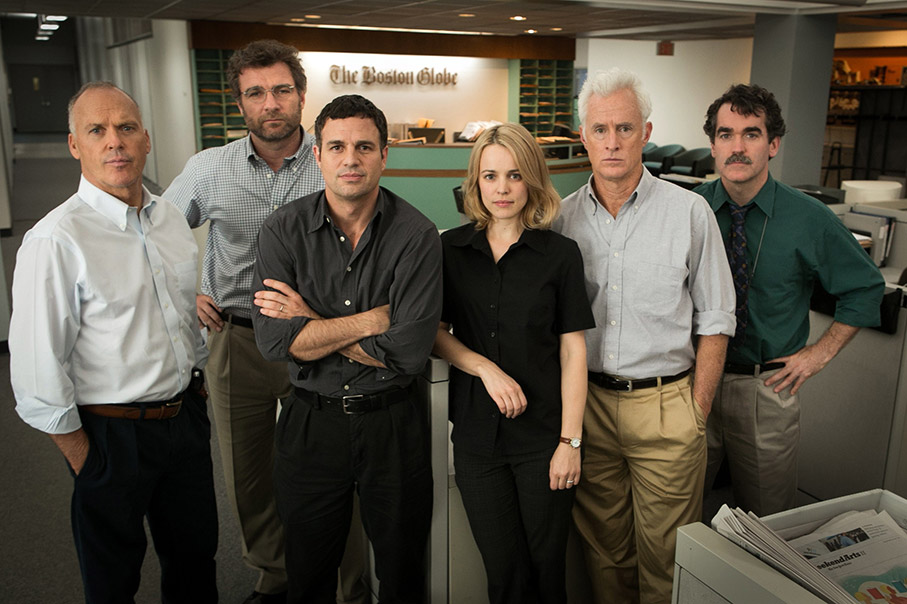
Spotlight
What's this? A best Picture Oscar winner on my pick of the year list? What is the world coming to? I should perhaps point out that this not the first time – I was and remain a huge fan of the Coen Brothers' No Country for Old Men, but even the filmmakers were surprised by the Oscar win there. Spotlight reveals how an investigative team at the Boston Globe uncovered the story of a massive child molestation cover-up within the Catholic Church. What quickly grabbed me about the film is that in a time when action thrillers seem to rule the roost, it takes its cue instead from the more low-key conspiracy thrillers of the 1970s, and specifically Alan J. Pakula's All the President's Men, a film that built an utterly compelling drama out of little more than conversations, phone calls, newsroom banter and reporters asking questions of reluctant interviewees. It's the same story here, and like Pakula's masterpiece (and, indeed, David Fincher's brilliant Zodiac), we're kept on tenterhooks about how the investigation will unfold, despite being aware from the start how the story concludes. An absolutely first-rate cast really sells it (how nice it is to watch Michael Keaton in a role where he gets to underplay rather than showcase a character), but special mention has to go to Mark Ruffalo's terrific turn as obsessive reporter Mike Rezendes.
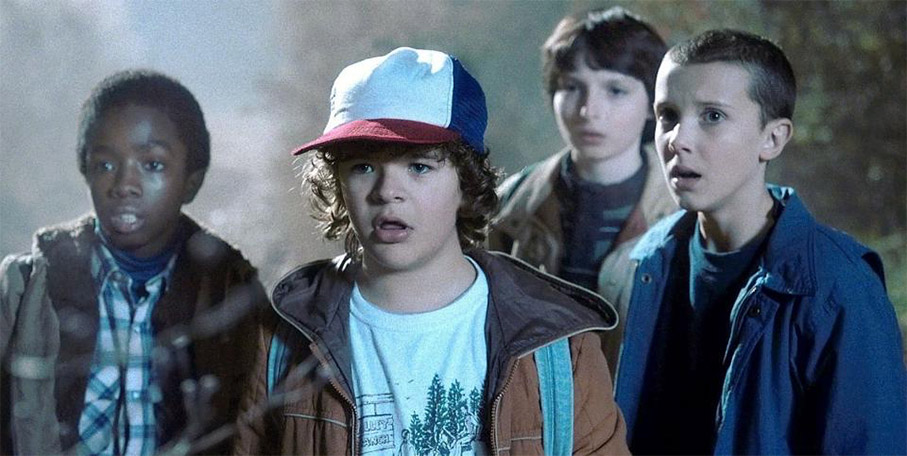
Stranger Things
Few TV series I've watched in recent years have so completely hit me out of the blue as this eight-part Netflix gem from the wonderfully named Duffer Brothers. In a small-town community in the 1980s, young Will Byers disappears and key members of the local community – including his mother Joyce, his brother Jonathan, town sheriff Jim Hopper and Will's three closest friends, Mike, Dustin and Lucas – launch their own investigations into what happened. Could it be tied up with the experiments being carried out at the secretive local government facility? And what of the young, uncommunicative and shaven-headed girl with telepathic powers who walks out of the woods the very same day that Mike is reported missing? Stranger Things is a rare and rather wonderful thing, a work that draws on a slew of 1980s films and literature and melds them into an exquisitely formed whole with its own distinct identity. It also tells a rattling good story, one whose twists, rewards and frustrations are all timed to perfection and whose fantasy elements never feel absurd within the context of its drama. The casting is terrific across the board, though I'll give a special shout for Finn Wolfhard, Gaten Matarazzo and Caleb McLaughlin as Mike, Dustin and Lucas – three kids who could have stepped straight out of The Goonies – David Harbour as Jim Hopper (he just gets better as the series progresses), Charlie Heaton as Jonathan (I so believed this guy), and the extraordinary Millie Bobby Brown as the young telepath, Eleven (that's actually her given name). Even the Stephen King-inspired opening titles and Kyle Dixon and Michael Stein's electronic music score are note-perfect here, and few seem to have picked up that it was shot in the more cinematic ratio of 2:1 rather than the TV widescreen standard of 1.78:1. A joy. I genuinely can't see how the promised second season is going to match this.
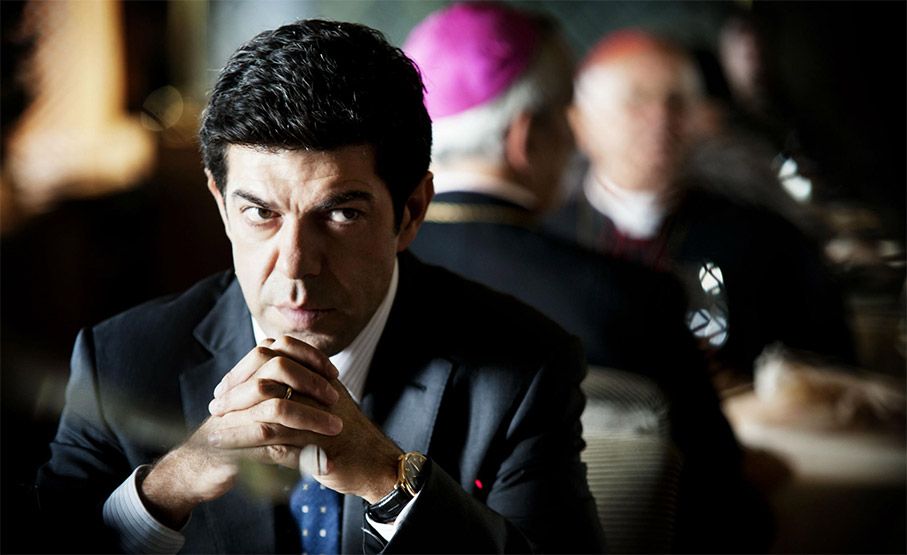
Suburra
"7 days to the apocalypse" announces the ominous caption at the start of this riveting Italian crime thriller, set during a single week in November 2011 that would prove tumultuous for the country and the various characters around which the story revolves. A number of seemingly disconnected stories involving a violent gangster, a corrupt politician, a gay socialite, the church, and an ambitious young criminal all begin to converge and impact on each other in often catastrophic ways. Beautifully shot on neon-lit city locations as the rain beats down like a biblical metaphor, and underscored by a strong electronic score by Pasquale Catalano, there is an overpowering sense that every corner of Rome has been touched by crime or corruption (or both) at some level. The second feature film from director Stefano Sollima, who draws heavily (but most effectively) on his acclaimed work on the TV series Romanzo Criminale and Gomorrah. Taking a cue from the second of those titles, Netflix have apparently comissioned a serialised TV spin-off series, about which we know little at this stage.
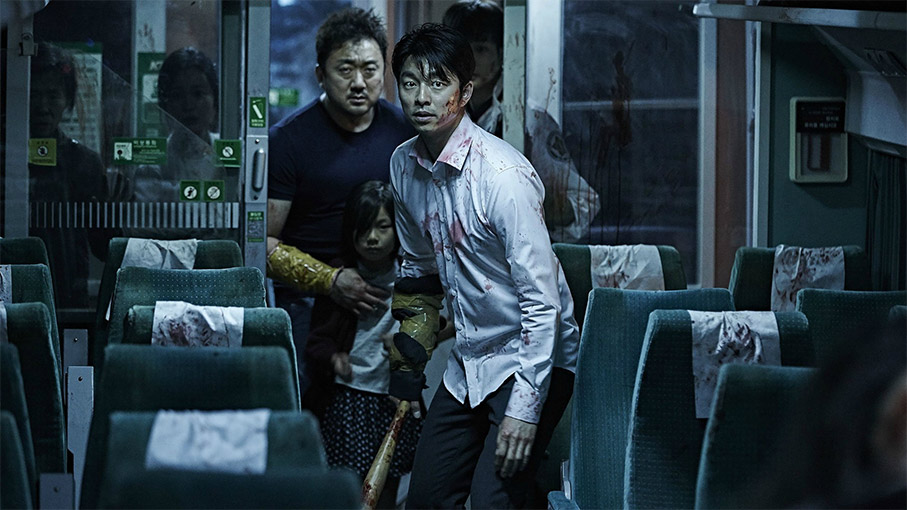
Train to Busan
Having sat through an absolute plethora of zombie movies, six-and-a-half seasons of The Walking Dead and even two of its spin-off, Fear the Walking Dead, you'd think I would have had enough of this particular sub-genre. I certainly thought so, at least until I sat down for King of Pigs director Yeon Sang-ho's first live action feature, Train to Busan. When work-absorbed, single parent Seok-woo arrives late home for his young daughter Soo-an's birthday with the very same present that he brought her for Children's Day, he offers to get her anything she asks for by way of apology, and she requests that he take her to see her mother in Busan. As they board they train, however, a virus that kills and transforms its host into a ferocious zombie with an infectious bite – one that is spreading through the city like a hurricane-fanned wildfire – arrives at the station. Unfortunately for the passengers, one of the infected is able to board the train before it departs and the virus rapidly spreads, directly threatening the lives of Seok-woo and Soo-an. It may seem like the only thing that makes this particular zombie movie stand out from the crowd is that it takes place on a train, but less than a minute into the first real zombie breakout you know damned well that the ante has been upped here. These are not the shuffling corpses The Walking Dead et al, but hyped-up balls of steaming savagery whose speed of movement would leave even those rage-infected creatures from 28 Days Later stumbling in the dust and who attack en mass as a nitrous-fuelled mob. The first half is almost a series of frantic chases broken only by scenes of hold-your-breath tension, and no sooner does a character make it through a door than the zombies are slamming against the glass like a swarm of angry wasps. Time after time I was left gasping for breath, and being Korean in origin, nobody's safety is guaranteed. The most exciting action thriller I saw all year.
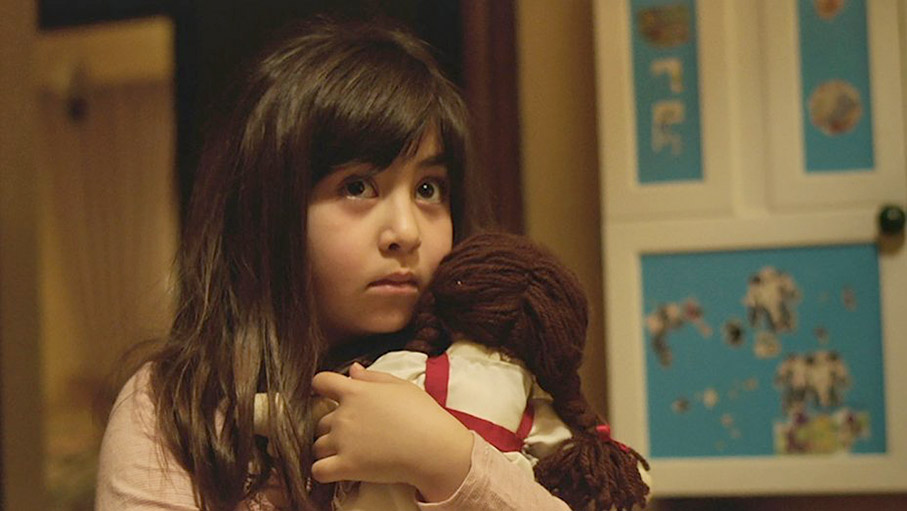
Under the Shadow
When her husband is called up for military service during the Iran-Iraq war, Shideh and her young daughter Dorsa are left alone in their Tehran apartment block as Iraqi bombs fall around them. When an unexploded missile crashes through the roof of the apartment upstairs, it seems to unleash a malevolent force known as a djinn, one that Shideh initially dismisses the idea of but later becomes convinced is a threat to her daughter's life. But is the djinn real or a product of Shideh's troubled mind? There are definite echoes of The Babadook here and even The Devil's Backbone in the bomb/ghost set-up, but first-time feature director Babak Anvari creates in Under the Shadow a distinctive and genuinely unsettling work with strong socio-political undercurrents and a couple of the very best scares I've been given all year. Top-notch performances from lead players Narges Rashidi as Shideh and (especially) young Avin Manshadi as Dorsa really help sell the authenticity of the perceived threat, and the soundtrack is one of the most vivid and alarming I've heard in a while – when the bombs start falling, you really feel do as if you're caught in the midst of it. The competition is strong, but this is probably the smartest and scariest horror film I saw in 2016.
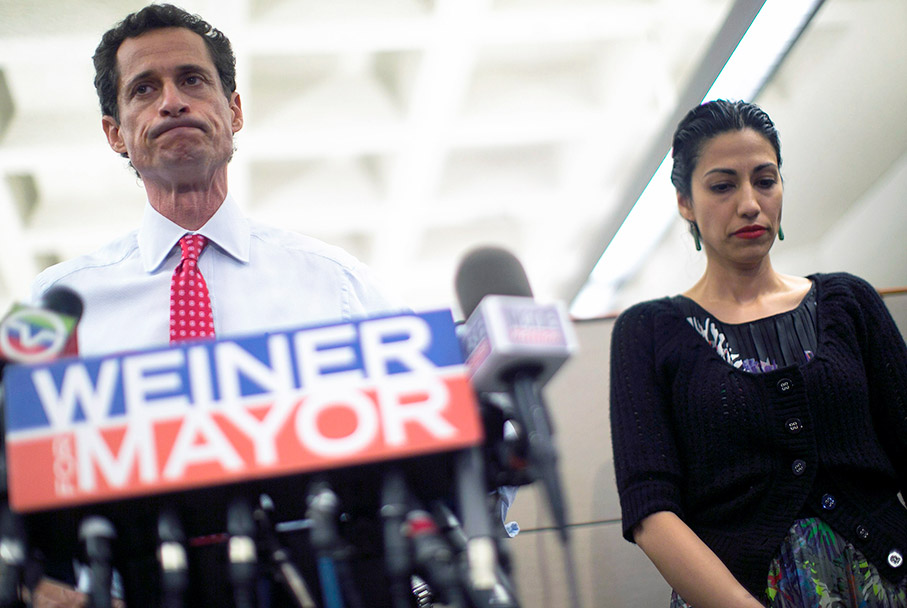
Weiner
Every now and then I see a documentary feature that makes me wonder how the filmmakers were able to get the footage that they did, and why the subject allowed them to continue filming when logic dictates that they would shut their doors and send the camera crew packing. But for a variety of reasons, that doesn't always happen. I'm still gobsmacked that Terry Gilliam let Keith Fulton and Louis Pepe to keep shooting when things went catastrophically tits up in Lost in La Mancha, but as a filmmaker himself, it's quite likely that Gilliam accepted that the purpose of a documentary is to record what unfolds, however awkward that might prove to be. But what was it that drove New York mayoral hopeful Anthony Weiner to continue to give filmmakers Josh Kriegman and Elyse Steinberg complete access to his private life after what happened during his election campaign? Vanity at being the star of a film about himself, whatever form it might ultimately take? A mistaken belief that he was somehow going to turn his problems around and win against the odds? I'm not sure I know, but the decision gave birth to one of the year's most gripping documentary features, one that gets so close to its subject that I repeatedly found myself shifting uncomfortably in my seat and slowly shaking my head in disbelief at what was unfolding. The oh-too-perfectly named Weiner, for those who do not know, is a former seven-term congressman who was forced to resign after he was caught sending photos of his genitalia to women he'd met online using his public Twitter account. His bid for mayor two years later was an attempt to put all this behind him and resurrect his political career, but during the course of the campaign, the same damned thing happens, and we get to sit and walk with Weiner and his long-suffering wife Huma (some of whose later facial expressions are priceless) as the campaign falls apart under the weight of scandal and relentless press scrutiny. And the effects of the scandal continue to resonate – check out this extract from an interview with Vice President Joe Biden when he learns that Weiner was the source of some of a new batch of leaked Clinton emails:
https://youtu.be/hjx-1gE9J7U
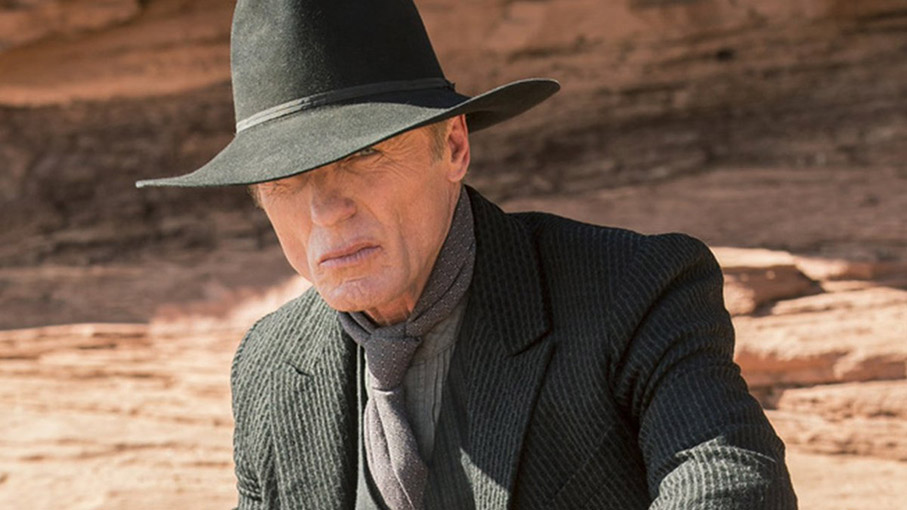
Westworld
Following a lead set by Fargo that a great film can also give birth to a great TV series if the makers go their own inventive way with the material, the makers of HBO sf drama Westworld have drawn inspiration from Michael Crichton's 1973 science fiction classic, taken the story in a different direction and developed their own specific themes and concerns. That's not to say I didn't have a couple of issues with the series. The in-film storyline writer, Lee Sizemore, is the sort of horrible, mouthy fist-magnet Brit that seems to keep cropping up in American movies and TV, and he's too often played to the gallery by Simon Quarterman. This is also the first American cable series I've watched where a good half of the swearing feels completely gratuitous, with scientists and technicians throwing the word 'fuck' about in a manner that feels complete wrong for the characters in question, and creates the impression that the language was artificially spiced up simply because it's an HBO show. But there's too much else here that is good and great to let this stand in your way: in the sometimes intricate nature of the storytelling; in the distinctly drawn characters; in the performances of Anthony Hopkins, Jeffrey Wright, Thandie Newton, Jimmi Simpson, Evan Rachel Wood, Ed Harris and others; in the thoughtful manner in which the notion of a self-aware machine is explored, building on elements previously explored in Blade Runner and even Star Trek's The Measure of a Man. It all made for utterly fascinating viewing, but fans may have to wait until 2018 for the promised second season.
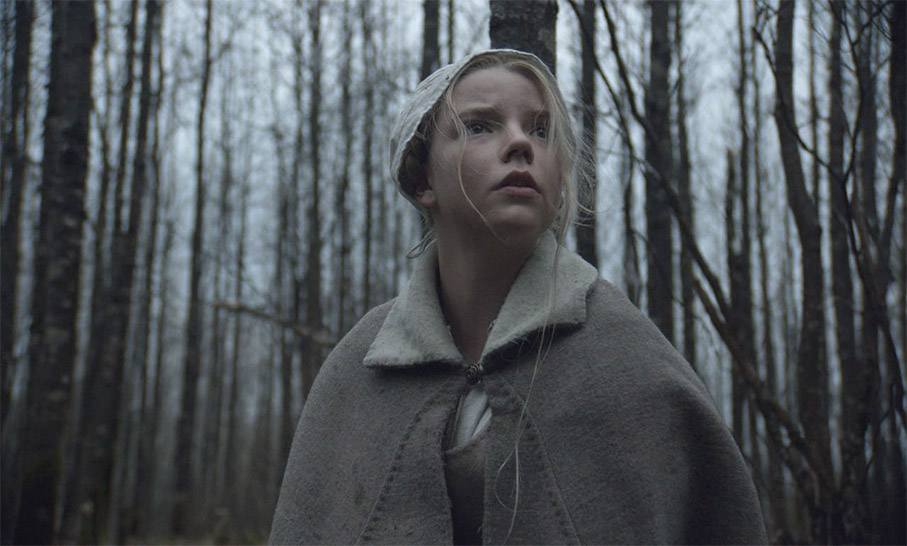
The Witch
It's been said that filmmakers often take their biggest chances when they first start out, and only time will tell whether that is also true of production designer turned director Robert Eggers' haunting debut feature, The Witch. At an isolated farm in 1630s New England, devout Christian couple William and Katherine and their children begin to turn on each other when their new born son disappears and their crops fail. Sorcery is suspected, but is superstition blinding them to the possibility that this is all the result of bad luck and the foolish games of children? Rarely in recent years have I watched a film that is infused from the opening scene with such an overpowering air of dark dread, and rarer still I have encountered one in which religion plays such an important role without the distancing effect it tends to have on me by default. Terrific casting helps, particularly the gravel-voiced Ralph Ineson's imposing turn as William, and just everything about the film – from the costumes and the production design to cinematographer Jarin Blaschke's gloomy natural light photography – feels astonishingly authentic to the time and place in which it is set. Even the use of language feels right, the result of basing almost all of the dialogue directly on writings from the period.
|